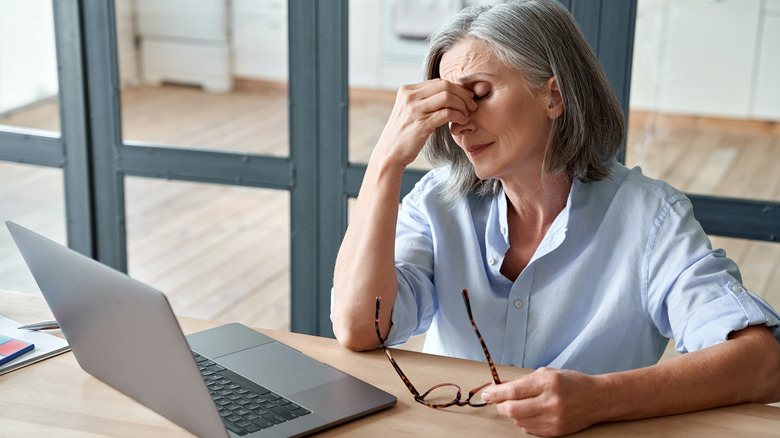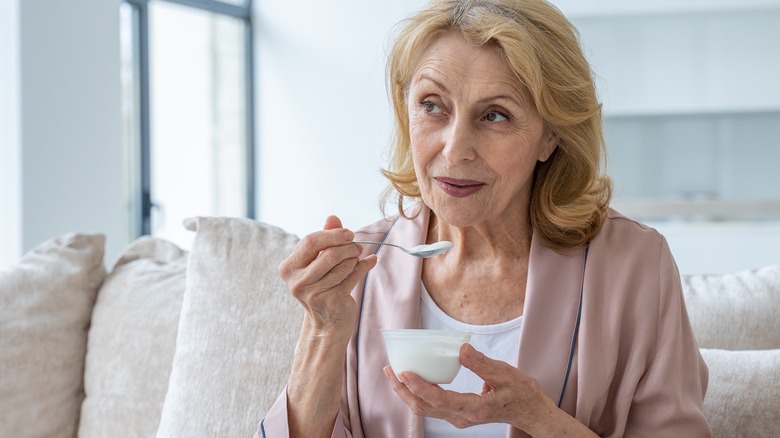How Much Water Should You Drink If You're In Your 60s?
Many of us go out of our way to eat nutritious foods and get our veggies and fruit in daily, and also find time to move our bodies and work out (via Medical News Today). We do our best to sleep well and destress with yoga, meditation, or mindfulness. Yet many of us do not make it a point to drink water throughout our busy days. The truth is we're missing a lot when we don't consume enough water.
Among many things we do to stay healthy, drinking water may be the most underrated practice. Water is not only necessary to keep our bodies functioning at an optimal level but staying hydrated keeps us alive. Water helps to carry waste away from cells, lubricate our joints, and regulate body temperature. Being in a state of dehydration is more common than you might think and might contribute to constipation, kidney stones, mood changes, headaches, and slower brain function (via Healthline).
As you age, consuming enough water becomes even more important.
Dehydration affects older people more
Being dehydrated affects everyone at any age, but it has particularly worrisome effects for older people. Sometimes identifying whether you are getting enough water can be tricky as signs of dehydration can be easy to miss, especially in seniors. Unfortunately for older adults, they might not always feel thirsty so they have to look at other signs (via Mayo Clinic).
Signs of dehydration include confusion, tiredness, dizziness, low blood pressure, and disorientation. People may also notice dark-colored and/or strong-smelling urine or have dry mouth, lips, eyes, or skin. Urinating fewer than four times a day is another sign of not getting enough fluid intake, notes the UK National Health Service.
According to WebMD, once they become dehydrated, older adults are more susceptible to other complications. These include problems with memory, poor concentration, slow reaction times, weakness which may cause falls, pressure sores, skin conditions, urinary tract infections, and kidney problems.
How to ensure you are drinking enough water
Older people may lose their sense of thirst so they may not ever feel thirsty until it's too late and they are already dehydrated (via Cleveland Clinic). In addition, many seniors have chronic health problems which can also affect their ability to drink enough. These problems include diabetes, memory issues, dementia, and kidney disease. Many elderly people experience incontinence and purposely try to drink less to avoid accidents.
People in their 60s need to drink at least 6 to 8 glasses of water each day (via WebMD). Though many seniors don't like to drink a full glass at one time, they can keep a water bottle next to them and take several sips throughout the day. Using a straw may make this easier. Another trick is to consume more water, preferably a full glass of it, when pills or vitamins are taken daily.
However, not all of the water needs to come from drinking. Foods with high water content such as soup, broth, yogurt, and fruit can help replenish fluids.


